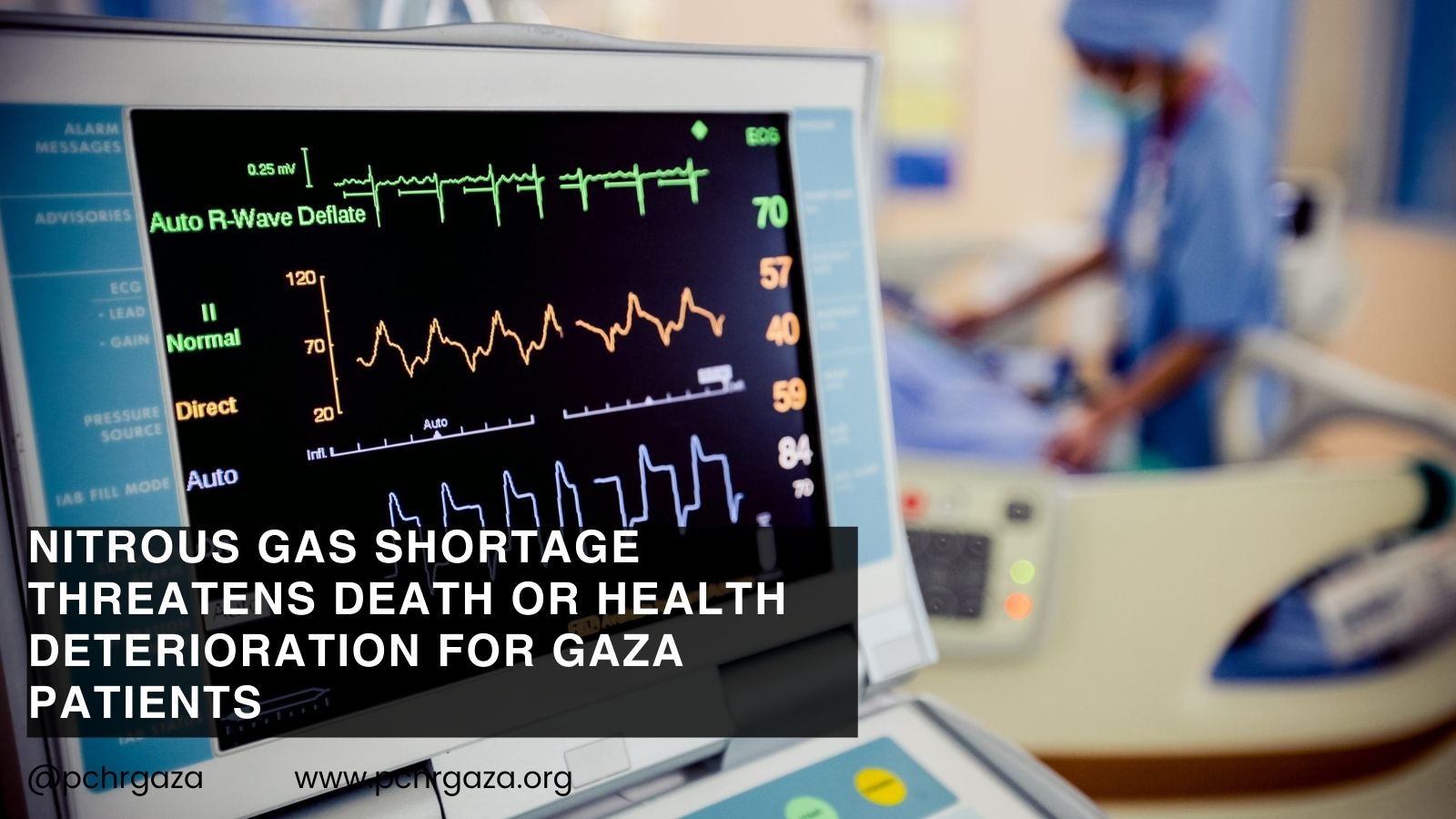
Ref: 107/2021
Date: 05 August 2021
Time: 09:30
On Wednesday, 04 August 2021, the Palestinian Ministry of Health (MOH) in Gaza warned that all emergency and scheduled surgical operations will be cancelled at all governmental hospitals in Gaza due to the Israeli occupation authorities’ ban on nitrous oxide gas entry since the beginning of 2021. Nitrous gas is used as an anesthetic in surgeries.
Mr. Mohammed Hammad, General Director of Administrative Affairs at MOH, said that the available quantities of nitrous gas only suffice for 10 days, emphasizing that MOH has contacted all relevant international bodies, including the World Health Organization (WHO), to force the Israeli authorities to allow the entry of the nitrous gas into the Gaza Strip; however, the latter rejected all appeals. Hammad added that MOH facilities need 120 nitrous gas cylinders each month; each cylinder contains 27 kilograms of gas. He clarified that running out of gas will lead to certain death, particularly for those in need of emergency surgical interventions to save their lives. Hammad called upon international organizations to take immediate action to provide hospitals with nitrous gas to enable them to continue operating and save patients’ lives.
More than 2 million people in the Gaza Strip depend on governmental health facilities to receive health services and undergo surgical operations. At least 5,000 surgeries are conducted in the Gaza Strip hospitals every month, including emergency or scheduled operations, cesarean sections, and other operations. Nitrous oxide gas is essential for all these surgeries.
The Gaza Strip’s healthcare facilities are already on the verge of collapse due to the Israeli-imposed closure for the last 15 years, and the situation exacerbated due to the repercussions of the Palestinian internal division and political bickering. All of this has resulted in a fragile healthcare system in the Gaza Strip, a perpetual shortage of essential drugs and medical devices and insufficient number of specialized health professionals; rendering the system unable to meet the basic medical needs of the Gaza Strip population in normal times.
According to Gaza MOH, its central warehouses have acute and serious shortage of the essential drugs list; as the number of drugs categories at zero stock has reached 244 out of 516, with a 53% deficit rate, while the number of categories that are sufficient for less than 3 months has reached 67 (13 %). Moreover, the central warehouses have acute and serious shortage of the essential medical supplies list; as the number of categories at zero stock has reached 274 out of 853, with a 32.1% deficit rate, while the number of categories that are sufficient for less than 3 months has reached 61 (7.1%).
PCHR warns of serious repercussions of the shortage of nitrous gas on the lives of thousands of patients who need urgent and emergency surgeries to save their lives in the Gaza Strip, and stresses that the primary responsibility for providing medical supplies to the Gaza Strip population lies with Israel in accordance with Articles 55 and 56 of the Fourth Geneva Convention of 1949.
PCHR calls upon the international community and the WHO to pressure Israel and compel it to comply with its obligations, and to allow the entry of medical supplies into the Gaza Strip, especially nitrous gas needed for conducting surgeries for thousands of patients in the Gaza Strip to spare them death or serious complications resulting from delayed or cancelled surgical operations.